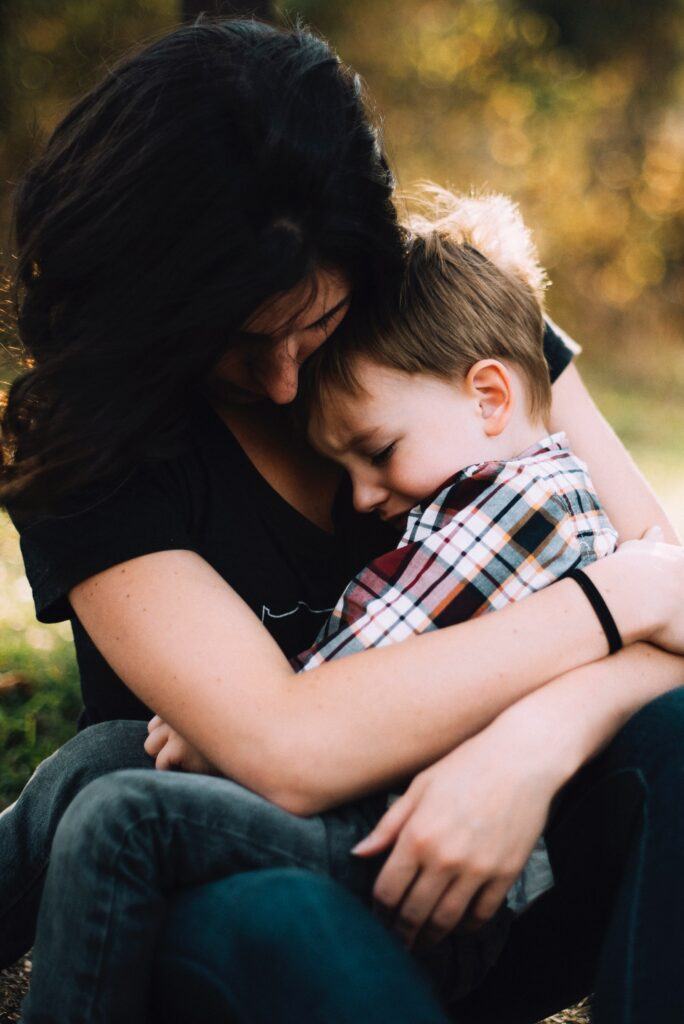What causes nosebleeds in kids? Seeing blood running from the nose of your child can be frightening. If you are facing this problem and do not know what to do, here is the article for you.
In fact, nosebleed -also known as epistaxis. A nosebleed is common in some preschoolers, sometimes several times a week. Don’t worry because it is not abnormal and dangerous – you only have to avoid the blood from flowing down the back of the nose into the throat, resulting in vomiting.
What should you do if your child gets a lot of nosebleeds? That’s what we’ll talk about in this article.

What Causes Nosebleeds in kids?
Here are the most common causes of nosebleeds for children. Although they are not all serious, you still have to watch out for:
- Colds and Allergies
The common cold is one of the main reasons that swells and irritates the nose’s lining. Because of repeated blowing of the nose that is supposed to relieve the cold, it can result in a nosebleed. Meanwhile, allergens tend to dry out your child’s nose, thus the nosebleed.
- Trauma
Children tend to pick their noses a lot, and sometimes, if it becomes too much, it may cause trauma to the nose. Sometimes, when children play too much, they insert objects into their noses, causing trauma. Another example is if your child gets hit by a ball too hard that his nose or face experiences enough trauma to the tissues, the nose will likely bleed.
- Anatomical Problems
If there are any anatomical issues inside the nose, such as deviated septum or the center portion of the nose is not even, it can lead to a nosebleed. Sometimes, there can be abnormal growths like polyps that must be checked by a specialist although not malignant.
- Chronic Illness
Is your child suffering from long-term illness? Do they require extra oxygen or medication? These can affect the nose’s lining that also causes nosebleed.
- Abnormal Blood Clotting
Nosebleed in children can also be because of blood clotting disorder. If you notice bruises all over your child’s body, consult with your doctor right away, as aside from blood clotting disorder, it may also due to leukemia or a nasal tumor.
- Low Humidity
Are you living in a low-humidity area? Then it is best to purchase a humidifier because low humidity produces dry air, and dry air dries the nose lining, resulting in irritation and nosebleed.
How to Prevent Nosebleeds in Children?
Prevention works better than cure. So, if you want to reduce the occurrence of nosebleeds on your children or avoid it altogether, here are some tips to prevent a nosebleed in children:
- For allergy reasons, treat them right away to prevent further inflammation of the nose.
- Keep your child’s nose moist by using saline nasal sprays.
- Get a humidifier to be placed in your child’s bedroom to make sure that the air does not dry out.
- Ensure to trim their nails regularly to prevent injuries caused by nose-picking.
- If your child is playing sports outside, encourage him to wear protective gear to protect the head and the nose.
How to Treat Nosebleeds in Children?
If you see blood running from your child’s nose, don’t panic, or you’ll end up scaring your child. Instead, calm and comfort them. Have your child sit up and lean forward. Don’t ask your child to lie down.
Ask your child to breathe through his mouth while you gently pinch the nostrils for ten minutes. Continue to squeeze if the bleeding continues.
You can also apply a cold compress to the nose bridge. It is essential not to put any gauze, tissues, or any kind of materials in your child’s nose.
If it continues to bleed, call your pediatrician or bring your child to the nearest emergency.
When to Seek a Doctor if a Child Has a Nosebleed?
There are also serious reasons why your children experience nosebleeds. The least common causes can be because of heart disease, high blood pressure, cancer, or certain medications, including blood thinners.
So, when should you call your doctor? Which point should you seek help at?
Call your doctor if:
- There is a continuous nosebleed. Or if it bleeds again.
- There is a severe injury to the head or the face.
- A considerable amount of blood is coming out of the nose.
- Your child starts to feel weak, or if they faint or having trouble breathing.
- There is bleeding in other parts of the body (e.g., gums, stool, urine).
- There is an object stuck in your child’s nose.
Conclusion
Shall i be concerned on nosebleeds in kids? If the nosebleed is due to dry air and frequent nose picking, you can easily treat it at home and can be prevented. Seek for medical attention if your child faces more serious bleeding without known reason or due to sport injuries, and accompanying with other health issues.
In summary, a nosebleed is common in young children, which less severe causes such as dry air, humidity, to allergies. If your child gets a nosebleed, remain calm and remember that it can be treated at home as you apply gentle pressure to the nose for at least ten minutes. If you apply shorter time, bleeding may start again.
Related post “ Safety at home for children”

